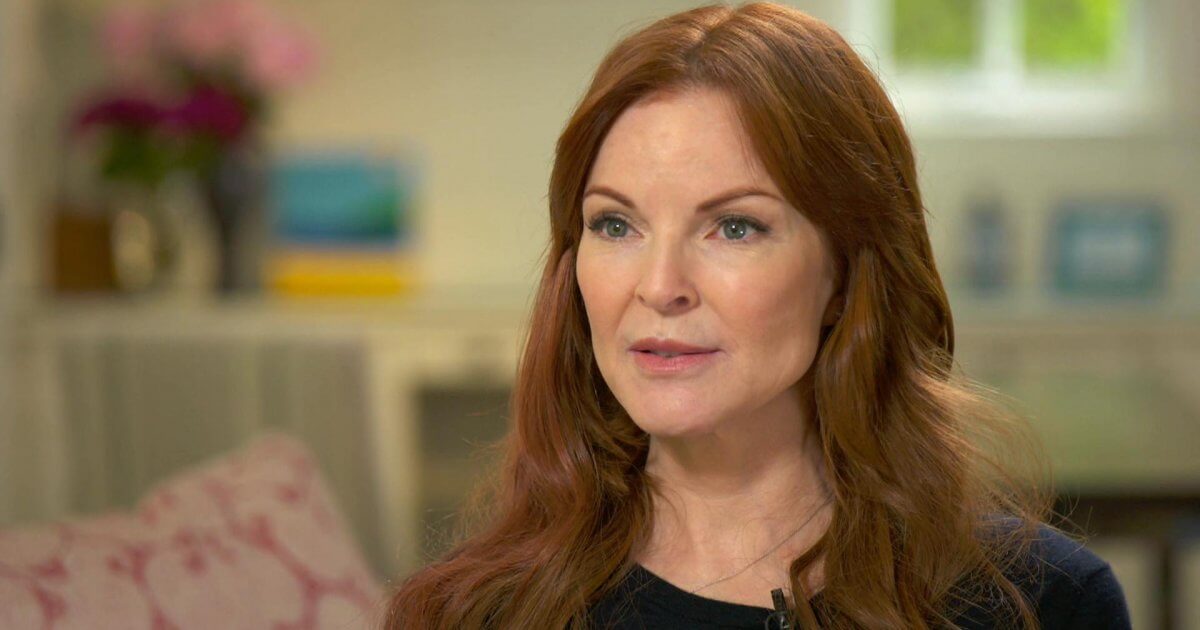Desperate Housewives alumni Marcia Cross realizes that being the face of anal cancer isn’t particularly glamorous, but still, she’s determined to use her experience with the disease to spread awareness about anal cancer prevention. She also said she will be getting her daughters the vaccine to protect against the human papillomavirus (HPV), the sexually-transmitted virus that caused her anal cancer.
Speaking to Us Weekly this week at a Farrah Fawcett Foundation event, Cross, 57, acknowledged that there is still a stigma surrounding the disease, but she’s going to be doing her part to put an end to it.
Read More
RELATED: DON’T BE SWAYED BY THE MYTHS ABOUT THE HPV VACCINE
Doctors have known for a long time now that certain strains of the HPV virus, which is contracted during sex, can cause cancer. In fact, more 33,700 cases of cancer per year are linked to the virus.
Cervical cancer is the most common cancer associated with the virus, but vaginal cancer, penile cancer, anal cancer, and mouth and throat cancer can result from HPV, too. Luckily, more than 90% of HPV-related cancer including anal cancer are preventable in people who get the HPV vaccine, which was first introduced in 2006 under the name Gardasil. And because it is estimated that 90% of anal cancers are the result of HPV one of the types of HPV that the Gardasil vaccine protects against that means 90% of anal cancers are preventable.
The HPV vaccine is recommended for children, and ideally should be given at a young age, before children become sexually active. The vaccine is most effective on people who have not yet been exposed to any strains of HPV. Cross revealed in June that her twin daughters, who are 12 years old, were about to go in for their vaccine shots — as she’s dedicated to spreading the cancer prevention message.
The HPV vaccine controversy
There is a lot of controversy and there are a lot of myths surrounding the HPV vaccine. But the bottom line is, this simple vaccine can prevent HPV-linked cancers — and that's a big deal. HPV is transmitted sexually, can lead to certain cancers, and is really wide-spread in the United States. In fact, if you're an American and you have sex, there's a pretty high chance that you have it.
One reason parents resist getting the vaccine for their kids is due to a myth that it can cause autism. "The HPV vaccines do not cause autism, there's always a risk of some vaccine-related side effects … local site injection pain, some redness, some swelling," says Dr. Jessica Geiger, a medical oncologist at Cleveland Clinic Cancer Center. "There are no syndromes such as autism or other neurologic symptoms that have been linked to the HPV vaccines."
Dr. Geiger also points out that a lot of parents resist getting the vaccine for their children because they don't want to think about their kids ever having sex. "The fact is that the majority of us are going to participate in sexual activity at some point in our lives … it's unreasonable to think that just because your child isn't engaging in sexual activity now that they won't later in life."
Learn more about SurvivorNet's rigorous medical review process.


